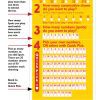Are you curious about how online poker sites make money? Well, you’re in the right place! Today, we’re going to dive into the fascinating world of online poker and explore the various ways these sites generate revenue. So, sit back, relax, and let’s uncover the secrets behind the financial success of online poker platforms.
You might be wondering, “How do these sites stay afloat when they offer so many cash prizes?” It’s a great question! Online poker sites have a clever business model that allows them to make money while providing an enjoyable experience for players like you. From the rake to tournament fees and even sponsored content, there’s a multitude of revenue streams that contribute to their financial success.
In this article, we’ll break down these revenue sources in a way that is easy for you to understand. So, whether you’re a curious poker enthusiast or just want to satisfy your curiosity, you’re about to uncover the inner workings of how online poker sites make money. Let’s get started!
Have you ever wondered how online poker sites generate revenue? It’s no secret that these platforms need to make money to stay afloat. Although the exact methods vary, here are some common ways online poker sites generate revenue:
- Through Rake: Online poker platforms take a small percentage of each pot as a service fee. This is known as the rake.
- Tournament Fees: Players pay an entry fee to participate in tournaments, and a portion of these fees goes to the poker site.
- Sponsorships and Advertisements: Popular poker sites often attract sponsorships and display advertisements to generate additional revenue.
- Virtual Goods: Some platforms offer virtual goods and in-game items for purchase, contributing to their revenue stream.
By utilizing these methods, online poker sites can generate income while providing players with an enjoyable gaming experience.

How Do Online Poker Sites Make Money?
Online poker has gained immense popularity in recent years, attracting millions of players from around the world. But have you ever wondered how online poker sites make money? In this article, we will explore the various ways in which these platforms generate revenue and stay profitable in a highly competitive industry.
1. Rake
One of the primary ways online poker sites make money is through the rake. The rake is a small percentage of the pot taken by the site as a commission for hosting the games. When players participate in a hand, a predetermined percentage of the total pot is deducted by the site. Rake percentages vary across different platforms, with most sites charging a standard 5% rake.
Moreover, some sites have a cap on the maximum amount of rake that can be charged per pot. This ensures that high-stakes games do not disproportionately benefit the site. The rake can add up to significant revenue for online poker sites, especially considering the vast number of hands and players involved.
It’s important to note that the rake is only collected when a hand reaches the flop. If a hand ends before the flop, no rake is collected. Additionally, there are certain instances where online poker sites may offer reduced rake or rakeback promotions to attract and retain players.
2. Tournament Fees
In addition to rake, online poker sites make money through tournament fees. Tournaments are a popular format where players compete against each other for a share of a larger prize pool. To participate in a tournament, players need to pay a buy-in fee, which can range from a few dollars to thousands of dollars, depending on the tournament’s prestige and prize pool.
The buy-in fees collected from all participants are added to the prize pool, with a certain percentage retained by the site as the fee. This percentage varies depending on the tournament, but it typically ranges from 5% to 10%. While tournament fees alone may not generate as much revenue as the rake, they contribute significantly to the overall profitability of online poker sites.
Furthermore, some sites also offer guaranteed prize pool tournaments, where the site promises a minimum prize pool regardless of the number of participants. In such cases, the site covers any shortfall in the prize pool, ensuring that players are still enticed to join the tournament.
3. Advertising and Sponsorships
Online poker sites often engage in advertising and sponsorship agreements to generate additional revenue. These agreements involve partnering with brands, companies, or individuals to promote their products or services to the site’s player base. Advertising can take various forms, such as banner ads, sponsored content, or even branded tournaments.
Sponsorships, on the other hand, involve partnering with professional poker players or influencers who act as brand ambassadors for the site. These players wear the site’s logo during live poker events or promote the site through their social media channels. In return, they receive financial compensation, tournament buy-ins, or other perks.
These advertising and sponsorship deals provide online poker sites with a steady stream of income while also increasing brand visibility and attracting new players. Additionally, some sites may also offer affiliate programs where individuals or websites can earn a commission by referring new players to the site.
4. In-Game Purchases
Another revenue stream for online poker sites comes from in-game purchases. While the core gameplay is typically free, many sites offer additional features, virtual goods, or premium memberships that players can purchase to enhance their overall poker experience.
For example, players may have the option to buy virtual chips to play at higher stakes or access exclusive tournaments. They could also purchase cosmetic items to personalize their online avatar or acquire special in-game advantages. These microtransactions can add up to substantial revenue for the site, particularly if there is a large player base and a high level of player engagement.
However, it is important for poker sites to strike a balance with in-game purchases to avoid creating a pay-to-win environment and ensure that the gameplay remains fair and enjoyable for all players.
5. Partnerships with Payment Processors
Online poker sites often form partnerships with payment processors to handle the financial transactions involved in depositing and withdrawing funds from player accounts. These payment processors charge a fee for their services, which is shared between the site and the processor.
By partnering with reputable payment processors, online poker sites can provide players with secure, efficient, and hassle-free payment options. This collaboration not only helps generate additional revenue but also contributes to building trust and credibility among players.
Moreover, some payment processors may offer incentives or exclusive offers to players who use their services on a particular poker site. This can further incentivize players to deposit and play on the site, benefiting both the site and the payment processor.
6. Data Analysis and Insights
Online poker sites collect a vast amount of data on player behavior, hand histories, and overall gameplay. This data is invaluable for analyzing trends, improving the site’s features, and enhancing the overall player experience. However, it can also be monetized by selling anonymized aggregated data or providing insights to third-party companies.
These companies can leverage the data to identify player preferences, develop new products or services, or conduct market research. Online poker sites can generate revenue by either directly selling the data or partnering with these companies to provide data analysis services.
It is crucial, though, that player privacy and confidentiality are protected, and data is anonymized and used in a responsible and ethical manner.
7. Licensing and Regulation Fees
Lastly, online poker sites may incur licensing and regulation fees to operate legally in certain jurisdictions. Obtaining a license from a regulatory authority requires meeting specific criteria, including ensuring fair gameplay, preventing fraud and money laundering, and protecting player funds.
While licensing and regulation fees are primarily expenses, they indirectly contribute to the site’s revenue by instilling trust and confidence in players. Licensed sites are perceived as safe and reliable, which attracts more players and encourages them to spend money on the platform.
Additionally, some regulatory authorities may impose taxes on the revenue generated by online poker sites. These taxes further contribute to the overall revenue of the sites, albeit in the form of obligations to the government.
Additional Aspects of Online Poker Site Revenue
Bonus and Promotion Offers
Introduce this section by mentioning that online poker sites use bonuses and promotions to attract new players and retain existing ones. Describe different types of bonuses such as welcome bonuses, deposit match bonuses, and reload bonuses. Explain how these bonuses work and what players need to do to unlock them. Discuss the terms and conditions associated with bonuses, including wagering requirements, expiration dates, and withdrawal restrictions.
Rigorous Security Measures
Highlight the importance of security for online poker sites and how it relates to revenue. Discuss the measures sites employ to protect player information, ensure fair gameplay, and prevent fraud. Talk about encryption, random number generators, and partnership with reputable security firms. Mention how a secure environment encourages more players to join and spend money on the site.
Mobile Gaming
Talk about the rise in mobile gaming and how it contributes to the revenue of online poker sites. Discuss the availability of mobile apps and responsive websites that allow players to enjoy poker on their smartphones and tablets. Mention the convenience and accessibility of playing on the go and how this attracts more players. Discuss any special mobile-only promotions or features that sites offer.
Summing it Up
Online poker sites employ multiple strategies to generate revenue and maintain profitability. From collecting rake and tournament fees to engaging in advertising partnerships and offering in-game purchases, these platforms have found innovative ways to monetize their services. Additionally, partnerships with payment processors, data analysis insights, and licensing fees also contribute to their revenue streams.
It is crucial for online poker sites to strike a balance between profitability and providing a fair and enjoyable gaming experience for players. By offering enticing promotions, ensuring rigorous security measures, and adapting to the growing demand for mobile gaming, these sites continue to thrive in a highly competitive industry.
Whether you’re a casual player or a devoted poker enthusiast, understanding how online poker sites make money can provide valuable insights into the dynamics of the industry and help you make informed decisions when choosing where to play.
Key Takeaways: How Do Online Poker Sites Make Money?
- Online poker sites make money by charging rake, a small fee taken from each pot in cash games.
- They also generate revenue through tournament entry fees, where players pay an amount to participate.
- Online poker sites may offer additional services like playing casino games or sports betting to generate income.
- Advertising and sponsorship deals also bring in revenue for poker sites.
- Affiliate programs, where sites earn a commission for referring players, contribute to their profits.
Frequently Asked Questions
Online poker sites have gained popularity in recent years, but how do they actually make money? Here are some common questions and answers that shed light on this topic.
1. How do online poker sites make money from players?
Online poker sites make money primarily by taking a small percentage from each pot played in cash games or by charging a fee for entering tournaments. This is known as the rake or tournament fees. For cash games, the rake is usually a small percentage of the total pot, while tournament fees are typically included in the buy-in amount. In both cases, the site collects these fees, which contribute to their revenue.
Additionally, some online poker sites also generate income through advertising, sponsorships, and partnerships. They may display ads on their platforms or collaborate with brands to promote their products or services within the poker community. These sources of revenue help sustain the site’s operations and contribute to their overall profitability.
2. Are online poker sites profitable despite the rake and fees?
Yes, online poker sites can be highly profitable even with the rake and fees they collect. While the percentage taken from each pot or tournament may seem small, the large number of players and the volume of games played online contribute to significant revenue. Moreover, these sites have relatively low overhead costs compared to traditional brick-and-mortar casinos, resulting in higher profit margins.
In addition to the rake and fees, online poker sites may also offer other services that generate income. This can include selling virtual goods such as avatars or offering premium membership options with exclusive benefits. By diversifying their revenue streams, online poker sites can increase their profitability and continue providing a platform for players to enjoy the game.
3. How do online poker sites handle player deposits and withdrawals?
Online poker sites typically have secure and convenient systems in place to handle player deposits and withdrawals. They may offer a variety of payment options such as credit cards, e-wallets, bank transfers, or cryptocurrency. When a player makes a deposit, the funds are credited to their account and can be used to participate in games or tournaments.
For withdrawals, players can request to cash out their winnings, and the online poker site will process the transaction. The time it takes for withdrawals to be completed can vary, depending on the site’s policies and the chosen payment method. It’s important for players to familiarize themselves with the withdrawal process and any associated fees before playing on a particular site.
4. Are online poker sites regulated to ensure fair play?
Many reputable online poker sites are regulated to ensure fair play and the security of players’ funds. They may be licensed by respected gambling authorities and subject to regular audits. These audits verify that the site’s random number generators and card shuffling algorithms are fair and not manipulated to favor certain players.
Player funds are also usually kept separate from the site’s operational funds, ensuring that players’ money is protected even in the event of the site’s financial difficulties. By adhering to regulations and implementing strict security measures, online poker sites aim to create a safe and trustworthy environment for players to enjoy the game.
5. Can online poker sites be vulnerable to fraud or cheating?
While reputable online poker sites go to great lengths to prevent fraud and cheating, it is important to remain cautious. The nature of online platforms means that there may be individuals or groups attempting to exploit vulnerabilities for personal gain. However, the use of sophisticated technology, encryption, and vigilant monitoring systems help minimize these risks.
Online poker sites also have dedicated teams to investigate reports of suspicious activity and collaborate with relevant authorities to combat fraud. Players can further protect themselves by practicing good online security habits, such as using strong passwords, keeping their software updated, and being mindful of phishing attempts. By staying vigilant and choosing reputable sites, players can enjoy online poker with peace of mind.
How Do Poker Sites Make Money?
Summary
So, how do online poker sites make money? Well, they make money by taking a small portion from each pot that is played. This is called the rake. They also make money from players who buy chips or enter tournaments.
Online poker sites need to make money to cover their operating costs and make a profit. They provide a platform for players to play poker against each other and take a small fee from each pot. Additionally, they offer features like virtual goods and tournament entries that players can purchase, which adds to their revenue.









